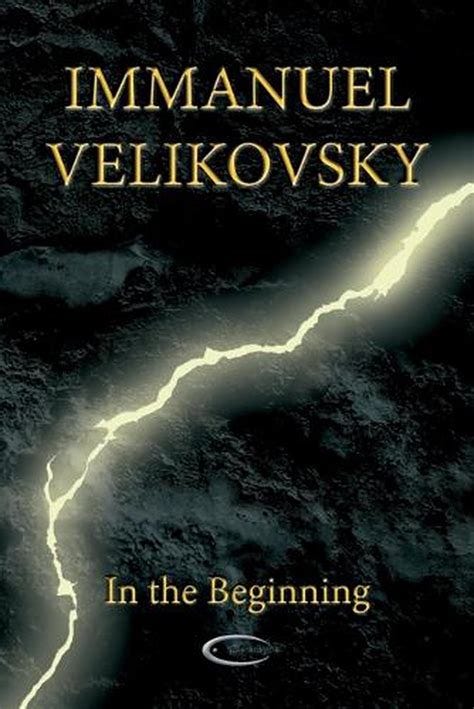Tuesday, May 30, 2023
Immanuel Velikovsky and 'In the Beginning'. An an age of stupid, question everything.
Exploding Darwin and Newton. No wonder he is hated by 'The Science'.
by StFerdIII

Immanuel Velikovsky, a Russian scientist and polymath, wrote ‘Worlds in Collision’ in 1950. It was a heretical book, challenging the dogma of Newtonian mechanics and the Darwinian stable-state theory of a world and universe within endless and unchanging ages. Velikovsky spent some 30-40 years in total, aggregating a mass of data from the realms of theology, science, geology, astronomy, cosmology and various related disciplines to offer various hypotheses about the young age of the earth, the reality of cosmological and geological catastrophism, the changing paths, natures, and compositions of the 9 planets in our solar system, the interaction and ‘wars’ between planets, and their impact on earth, human life, our history and our collective memory. In essence, Velikovsky using theological tracts from across the world, and situating Old Testament events against cosmological change and conflict, was able to construct a thesis that challenged all of the assumptions, vested interests, ‘laws’ and gospels, found in our modern world. You can well imagine the reaction of ‘the science’ to such a bold assault.
For some of the more sentient, the Corona Fascism and scamdemic should have forced a reappraisal of what we think we might know, and a reassessment of the world around us. From ‘health’, to the moon-landing, to ‘evolution’, to ‘long ages’, to the endless wars stretching from 1950 to the current NATO generated war against Russia in the Ukraine, to government and ‘democracy’, to ‘green’ projects and the ‘green-ness’ of solar, bird choppers and electric vehicles, to ‘climate’ and the hottest-days-ever, to even 9-11, all ‘facts’ and ‘science’, all that we know is up for analysis, debate, and rejection. In short, the world is not what it seems.
The fascism and evil of Corona should have been the clanging church bell, ringing emphatically and without cessation in the hour of great need, with the enemy at the gates and trying to scale the walls, waking up the citizens, demanding that the strong and capable man the walls, calling the loyal and intelligent to their duties to defend family and freedom. If ‘the science’ around ‘Corona’ and ‘viruses’ is so corrupt, so beholden to criminal industries and organisations such as Pharmaceuticals and the privately funded WHO, what else in our world is ‘wrong’? If like Neo, you feel that something just ‘isn’t right’, then reading Velikovsky is probably for you.
Velikovsky wrote an epic series which attempts to reconstruct our collective memory from the deep past and connect cultural, oral and religious traditions to what we can see and view around us in the physical and cosmological world. These works include: In the Beginning, Worlds in Collision (his most famous opus), Ages in Chaos, Earth in Upheaval, and Mankind in Amnesia. The key insight from Velikovsky is that our ancestors and their oral, cultural, written and religious stories, myths and beliefs were based on fact. These humans were rational as well as emotional and creative actors, and for Velikovsky it is clear that generations of humans experienced catastrophic events which transformed their view of life and the cosmos and these events were preserved in various traditions and handed down. Importantly these stories and beliefs are quite similar the world over and they revolve around the planets which interacted with our own. If they are true, they completely overturn much of what we think we know.
Take ‘In the Beginning’, which should be read as the first book of Velikovsky’s somewhat dense series of hypotheses, followed by ‘Worlds in Collision’. Velikovsky asks a lot of good questions which ‘The Science’ and even ‘The History’ cannot or dare not address, including inter-alia:
1-Why did all ancient people worship as the celestial God the planets in our solar system, in a similar order and pattern: the Moon, then Mercury, Saturn, Jupiter (Zeus, Odin), Mars, and lastly Venus? More here